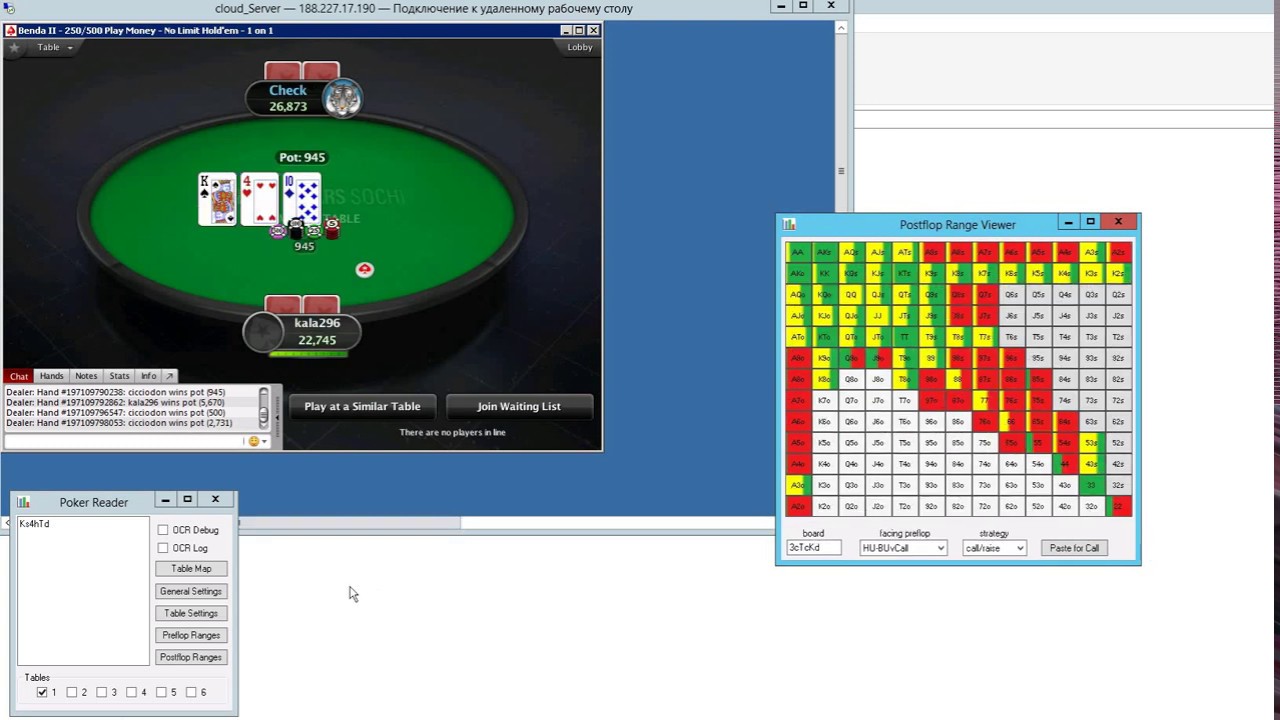GGPoker is in the process of returning more than $1 million to players that lost out to the latest threat in online poker, real-time solvers.

GGPoker posted news of the reimbursements on September 30, six months after the issue first broke.
In the update, a GGPoker representative outlined the company’s “enhanced” detection methods and “improved” internal processes for handling cheats.
Real-Time Solvers Become a Real Issue
The overriding message from GGPoker HQ is that real-time solvers, aka real-time assistance (RTA) software, is prohibited. But, more importantly, its security team is “fully aware of the ways” RTA is being used.
To that end, GGPoker has upgraded its detection methods and that’s resulted in a wave of account closures. The first set of public results show that affected players will receive refunds and 80 users have either been banned or warned:
- GGPPoker has banned 13 accounts and will return $1,175,305 to affected players.
- GGPoker has banned a further 27 accounts but its hasn’t confiscated any funds in these cases.
- Finally, GGPoker has issued warnings to 40 users.
Computer algorithms and insights from professional poker players are analyzing hand data from suspected cheats. The security algorithm constantly refines itself as new data emerges and, in turn, it’s able to detect whether game theory optimal (GTO) play has occurred.
A “variety of other factors” are then used to determine whether the player made GTO moves with the help of RTA.
In addition to data analytics, GGPoker is urging players to speak up. Players can now report suspicious activity in real time using the flag icon on the hand history page.
What is Real-Time Analysis?
Solvers are programs that allow users to input a range of variables and find out the optimal move in a given scenario. They have been popular with poker players for the best part of a decade, specifically as a training tool used away from the table.
For example, Nash calculators use the Nash equilibrium to determine the optimal move in a given scenario when cards, position, and payouts are taken into account. These calculators are a particularly useful for heads-up situations in tournaments.
However, the software has evolved in recent years with the help of artificial intelligence (AI) and it can now be used in real time. A video posted in February 2020 (see above) shows how RTA software can suggest mathematically optimal plays in live scenarios.
GGPoker Tackling Biggest Poker Scandal of 2020
Prior to PokerKid’s video, RTAs had already caused rumblings of discontent. However, the issue caught fire in June when Russian poker player TylerRM called out Twitch streamer littlepoker.
Russian community member TylerRM has accused a recent twitch streamer 'littlepoker' (https://t.co/noVUgXdf76) of being assisted in the 500 ABI games on GG/Party and, via his own screenshot the group of usernames under which he plays seem to have accrued half a million in profit. pic.twitter.com/L9FUUDrGXS
— Andy Wilson (@BowieEffect) June 17, 2020
According to TylerRM, littlepoker made almost $500,000 on GGPoker and Partypoker with the help of RTA. Partypoker Ambassador Patrick Leonard also went public with his concerns around the same time.
He recently doubled down on what he’s sees as the “biggest threat to online poker” when he appeared on Joey Ingram’s podcast (see video below).
The “huge drama” he hinted at was the use of RTA software in high-stakes games. Fedor Kruse was the man accused of cheating, this time by his roommates. The German pro allegedly used two computers, one of which he referred to as his “dream machine,” to run an RTA program.
Cheats at the poker table aren’t a new thing. However, the ways they try to gain an unfair advantage is always changing. GGPoker’s latest announcement will offer some reassurance to players but this is clearly a deeper problem than many first suspected.
Leonard has said RTAs will be the biggest story in poker for the next three months. With GGPoker now on high alert, this could lead to more disciplinary action and refunds in the coming weeks.


